Media coverage
Share

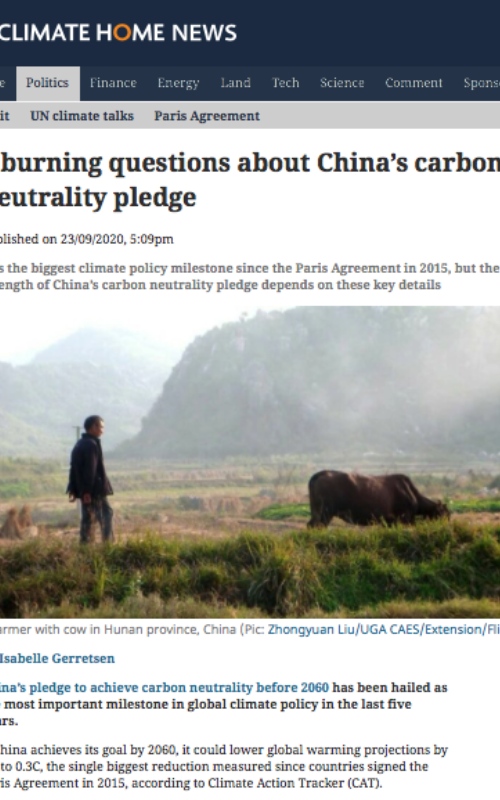
Climate Home News
China’s pledge to achieve carbon neutrality before 2060 has been hailed as the most important milestone in global climate policy in the last five years. If China achieves its goal by 2060, it could lower global warming projections by 0.2 to 0.3C, the single biggest reduction measured since countries signed the Paris Agreement in 2015, according to Climate Action Tracker (CAT).
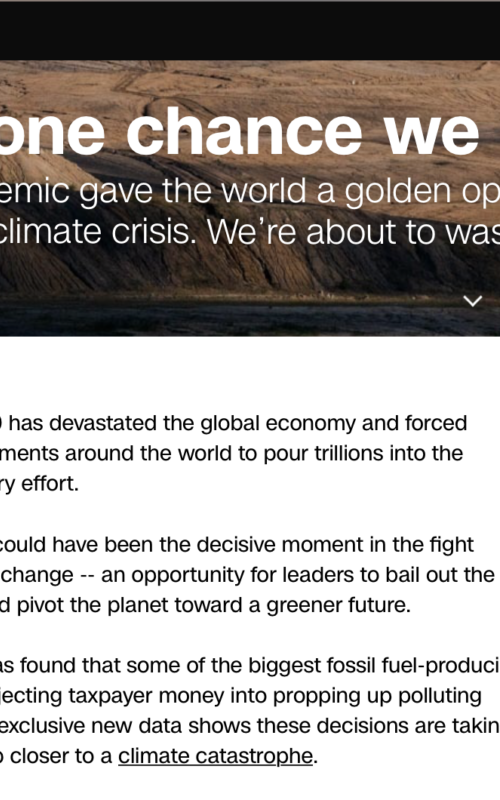
CNN
The COVID-19 pandemic could have been the decisive moment in the fight against climate change -- an opportunity for leaders to bail out the environment and pivot the planet toward a greener future. Instead, CNN has found that some of the biggest fossil fuel-producing countries are injecting taxpayer money into propping up polluting industries. And exclusive new data shows these decisions are taking the world a step closer to a climate catastrophe.This extensive CNN interactive feature is based on data from the Climate Action Tracker and features insights from Climate Analytics' CEO Bill Hare.
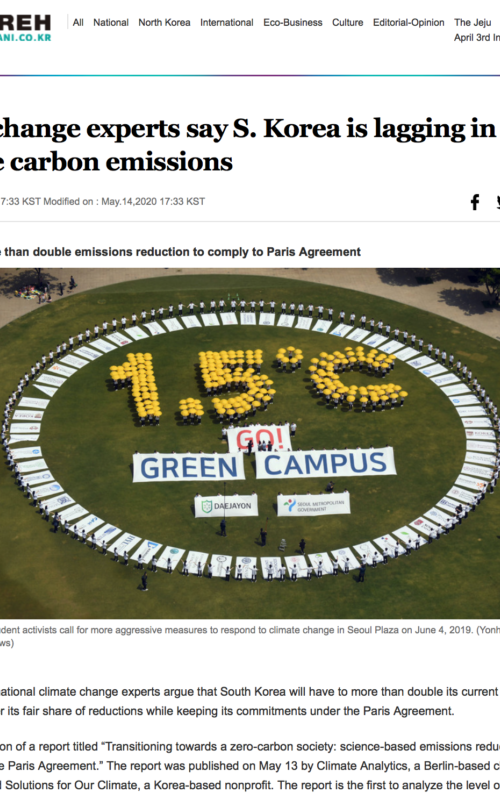
Hankyoreh
In a new report, international climate change experts argue that South Korea will have to more than double its current emissions reduction target if it’s to shoulder its fair share of reductions while keeping its commitments under the Paris Agreement. “The important thing is for the Korean government to strengthen its 2030 emissions target to bring it in line with the Paris Agreement. Key to that is accelerating the supply of renewable energy as quickly as possible so that coal plants can be shut down within 10 years,” said Ursula Fuentes, a senior climate policy adviser at Climate Analytics.
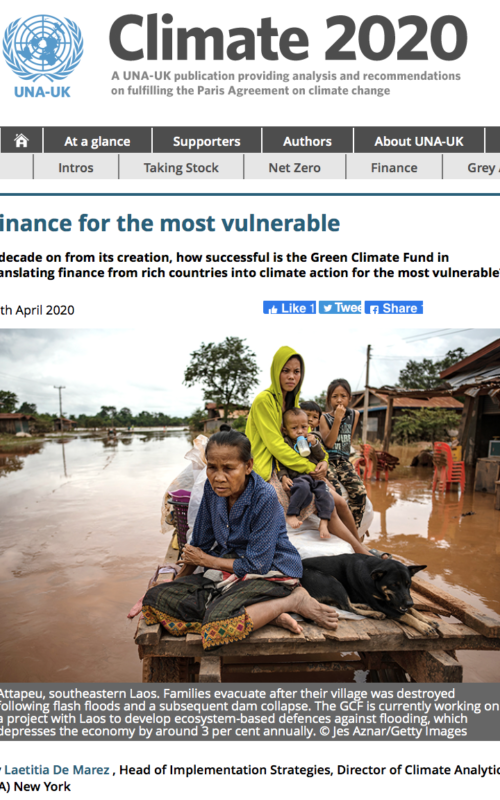
UNA-UK Climate 2020 Report
A decade on from its creation, how successful is the Green Climate Fund in translating finance from rich countries into climate action for the most vulnerable? An article by Director of our New York office and Head of Implementation Strategies Laetitia De Marez in UNA-UK's report Climate2020.
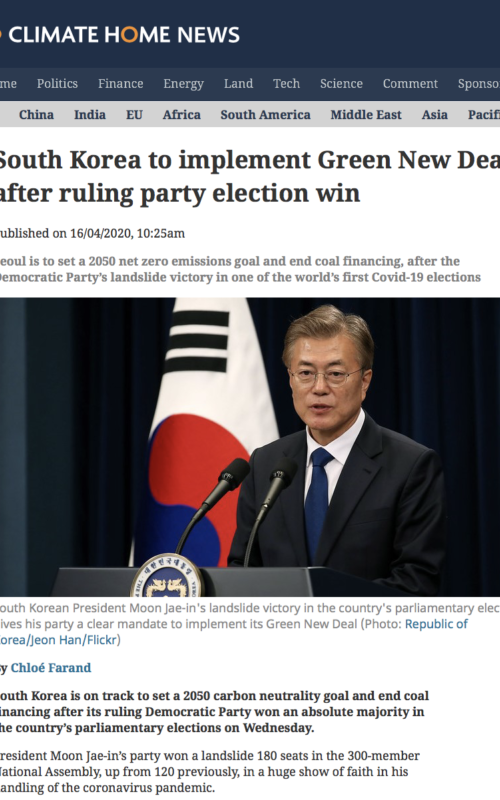
Climate Home News
South Korea is on track to set a 2050 carbon neutrality goal and end coal financing after its elections. Ursula Fuentes Hutfilter from Climate Analytics said “This is a clear mandate and opportunity for the party to implement these policies,” adding that for the Democratic Party to turn its promises into something credible it needed to take “concrete steps”, including updating its 2030 emissions target and developing a clear roadmap to phase out coal power.
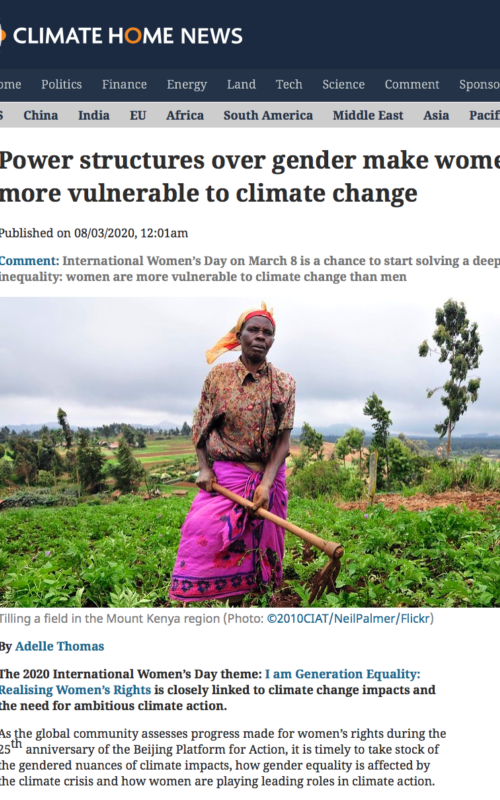
Climate Home News
International Women’s Day on March 8 is a chance to start solving a deep inequality: women are more vulnerable to climate change than men - commentary from Dr Adelle Thomas, senior research associate at Climate Analytics and director of the Climate Change Adaptation and Resilience Research Centre, at the University of the Bahamas.
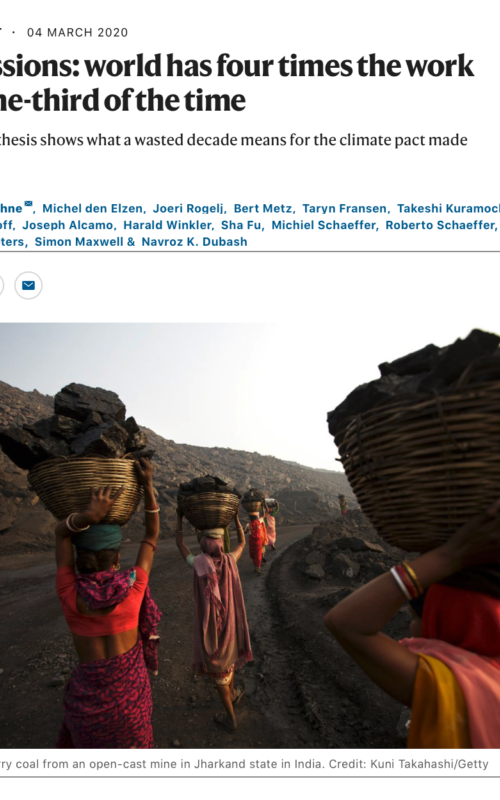
Nature
Emissions: new synthesis shows what a wasted decade means for the climate pact made in Paris - commentary from a group of international scientists including Climate Analytics' Science Director Michiel Schaeffer.
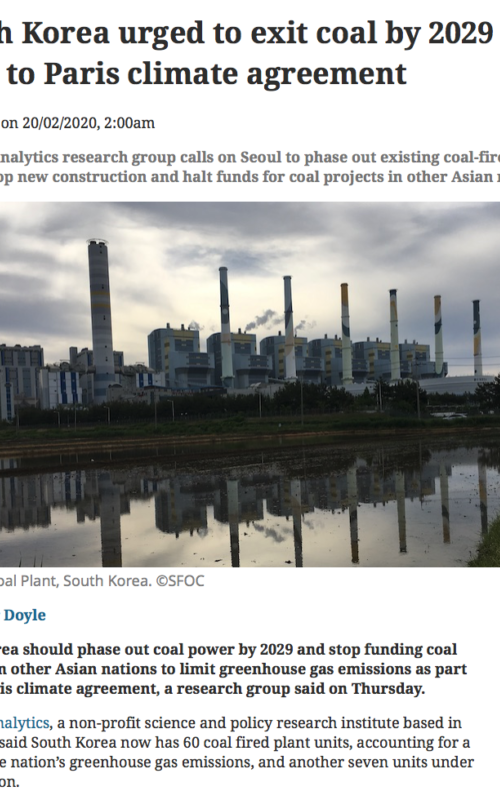
Climate Home News
South Korea should phase out coal power by 2029 and stop funding coal projects in other Asian nations to limit greenhouse gas emissions as part of the Paris climate agreement, a research group said on Thursday.

ABC Radio National
Amid the worldwide sympathy for Australia during the horrendous bushfire season there has been surprise at the government’s response. The bushfires chapter adds to growing international disillusionment with Australia’s role in climate policy negotiations. Climate Analytics CEO Bill Hare and Dean Bialek from Mission 2020 discuss Australia's record on climate action on ABC Radio National
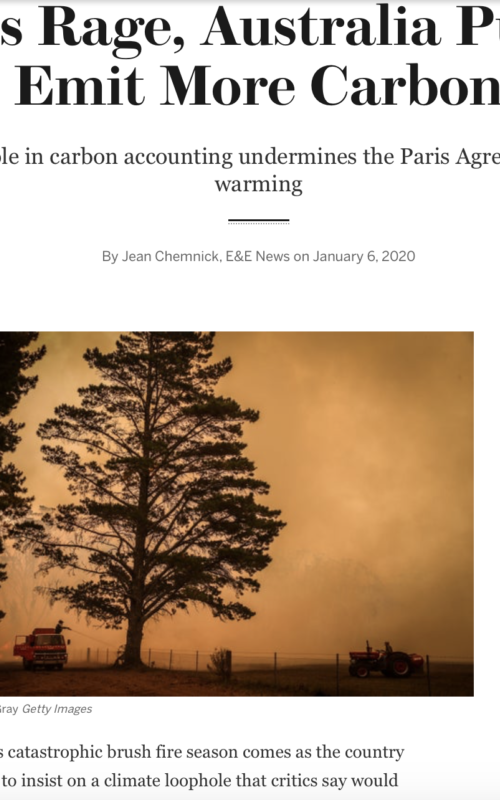
Scientific American
Australia's catastrophic brush fire season comes as the country continues to insist on a climate loophole that critics say would undermine the Paris Agreement's objective of keeping global warming to relatively safe levels. Coverage of our report on Australia's intent to use 40 year old Kyoto Protocol credits to meet its already insufficient 2030 emission reduction targets.